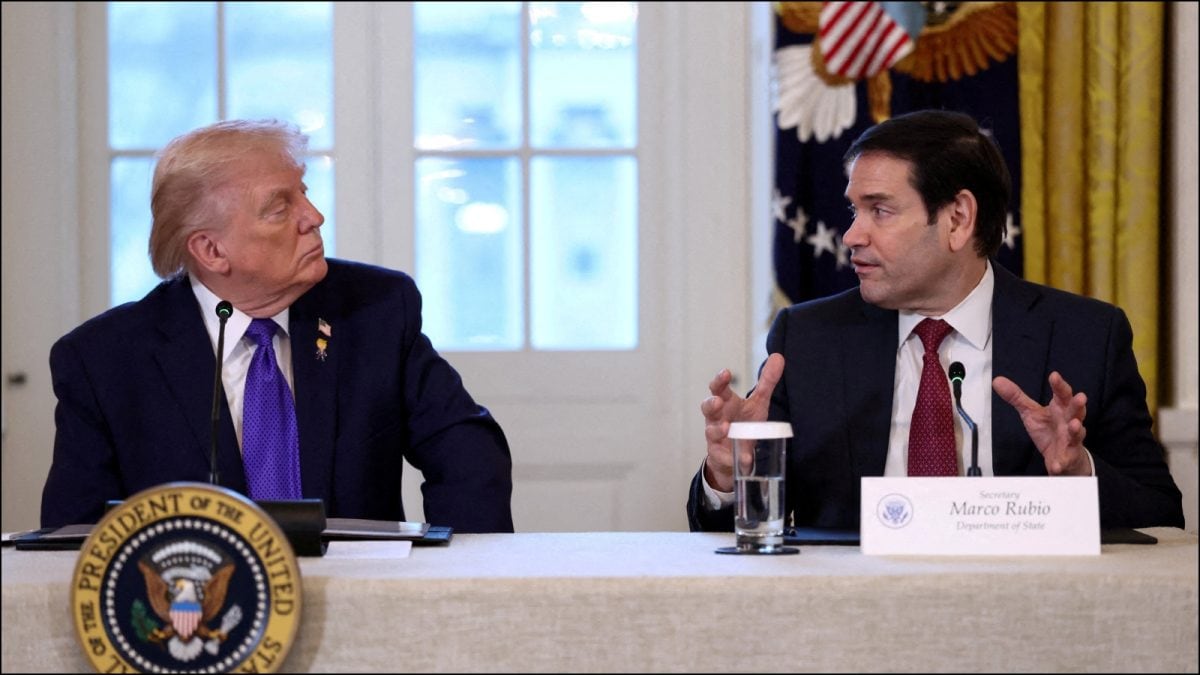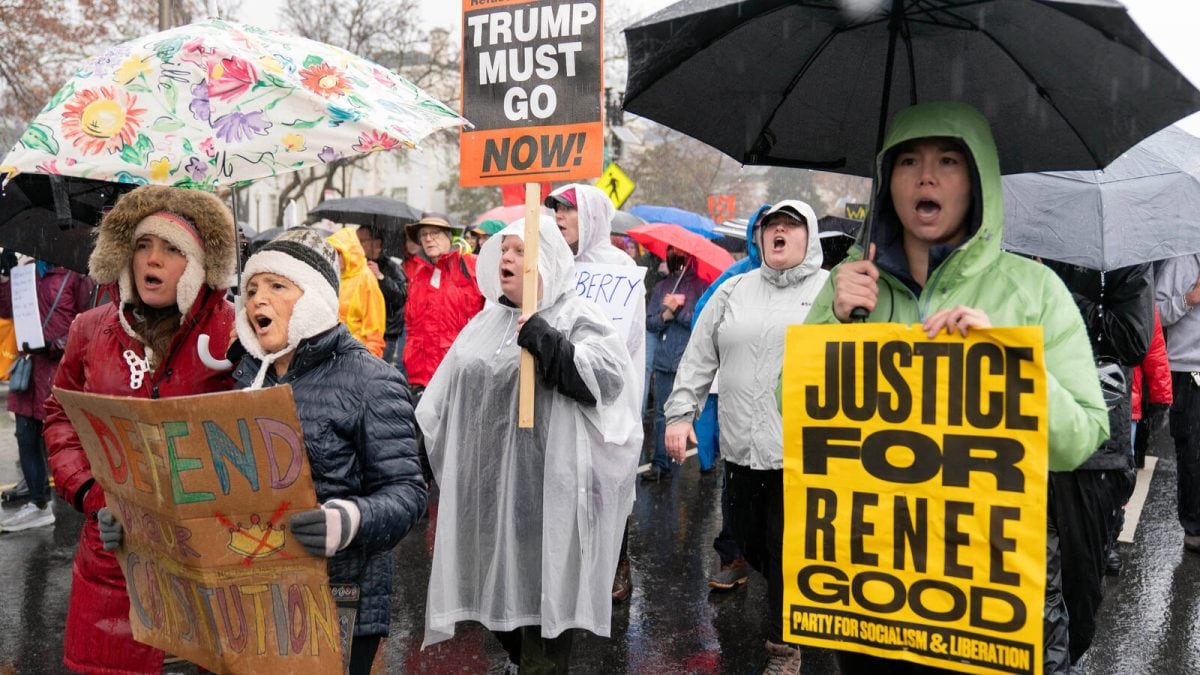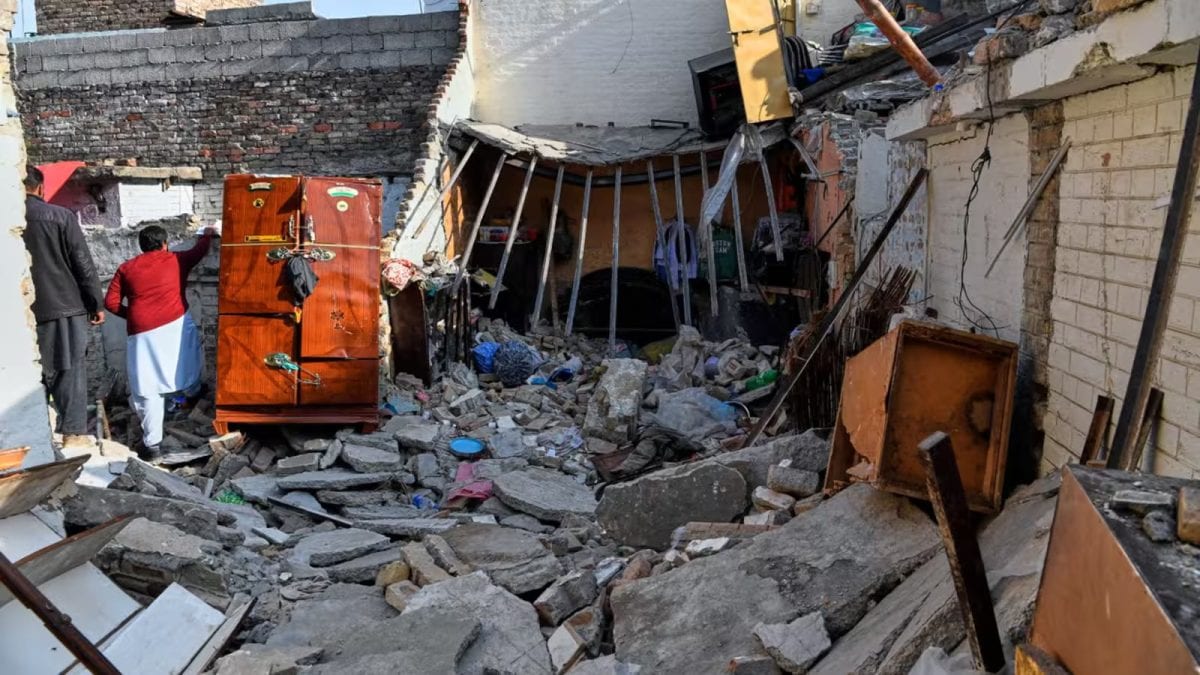Last Updated:November 13, 2025, 11:46 IST
From federal paycheques and SNAP to air travel, here’s what changes now that Donald Trump has signed the funding bill, ending the longest federal government shutdown in US history

US President Donald Trump on Wednesday signed the funding bill passed by Congress, bringing an end to the 43-day federal government shutdown. (Image: AFP)
US President Donald Trump on Wednesday signed the funding bill passed by Congress, bringing an end to the 43-day federal government shutdown, the longest in US history. The closure had halted paycheques for federal workers, disrupted food benefits for millions, and triggered major delays across the country’s air travel system.
The House of Representatives approved the Senate-backed measure in a 222–209 vote, with nearly every Republican and six Democrats supporting it. With Trump’s signature, funding is restored, and federal agencies can begin reopening. Most furloughed federal employees have been told to prepare for an immediate return, though different departments will resume operations on slightly different timelines.
The bill keeps the government funded until January. While it prevents another immediate shutdown, several effects of the shutdown will continue as agencies work through backlogs, resume public services, and release delayed information.
Here is what changes now that the government is reopening, and how soon Americans can expect daily services to return to normal.
Federal Workers Will Return, With Job Security And Back Pay
The reopening allows roughly 1.4 million federal workers to return to their duties. Many of them were furloughed, while others worked without pay throughout the standoff.
Ahead of the vote, the White House said the package “ends disruptions to programmes the American people rely on and ensures that federal employees forced to work without pay, such as air traffic controllers, will now be promptly paid."
The bill includes several measures affecting workers:
All federal layoffs that occurred during the shutdown will be cancelled.Every federal employee who missed paycheques will receive full back pay for the period during which they could not work.Agencies expecting to reduce staff during the shutdown will have those plans reversed.Further layoffs will be prevented through 30 January, as stated in the bill.Departments have begun instructing workers on when to report back. Interior Department personnel were told to resume work on Thursday, Agriculture Department staff were asked to return on Friday, and the Department of Health and Human Services said: “All employees who were furloughed must report for duty at their official duty station on Thursday, Nov. 13, if the bill is signed into law tonight or tomorrow morning."
The immediate return will restore functions across preschools, food assistance programmes, and federal offices that had stopped operating. Museums and national landmarks that were closed during the shutdown will also begin preparing to reopen.
Food Assistance Programmes Will Be Restored
One of the most significant disruptions during the shutdown was to food benefits for millions of families, especially those relying on the Supplemental Nutrition Assistance Program (SNAP). With the government reopening, the law restores the programme’s funding. The deal replenishes SNAP’s contingency fund and fully funds child nutrition programmes, including free and reduced-price school meals.
The WIC programme, which supports around seven million pregnant women, new mothers, and young children, will receive $8.2 billion, an increase of $603 million from the previous fiscal year, and its contingency fund will also be replenished. The Commodity Supplemental Food Program, which serves more than 700,000 low-income senior citizens, will receive $460 million.
Even with funding restored, the timing of SNAP disbursements remains uncertain because the administration had attempted to pause full payments while the shutdown was ongoing. States are expected to resume issuing benefits once systems restart, but there is no clarity yet on how quickly the payments will reach families.
How Soon Will Flights Return To Normal After Widespread Cancellations?
Air travel was among the hardest-hit sectors during the shutdown, with air traffic controllers reporting sick or unable to work without pay. This caused widespread delays and cancellations across major airports.
The Federal Aviation Administration had ordered a reduction in flights at 40 of the country’s largest airports because controllers were not reporting to work. On Wednesday morning, before the bill was passed, more than 900 flights in and out of the US were cancelled.
Although the government has now reopened, those disruptions will not disappear immediately. It could take days or even weeks for airlines to rebuild flight schedules and staffing levels after the prolonged shortage of personnel.
Economic Reports Delayed During Shutdown Will Be Released
The shutdown halted the release of important federal economic data. The Bureau of Labor Statistics was scheduled to publish the September jobs report on 3 October, two days after the shutdown began, but the closure forced delays.
Economists cited in the Wall Street Journal said that the report will likely be released shortly after the government reopens. However, other reports, including the producer-price index and the unemployment rate for October, may take longer to appear because the agency had been furloughed and was unable to conduct surveys.
These reports are used to understand employment trends, wages, and market activity, and the delayed release means the public and businesses will receive this information later than usual.
Public Attractions Preparing To Reopen After Prolonged Closure
parks, museums, forests, and other federal properties will begin to resume normal operations. The process will not happen immediately: staff must return, prepare facilities, and restore services.
Most national parks remained open in a limited manner during the shutdown, but museums and major attractions were fully closed.
Bill Allocates New Security Funding For Congress And Supreme Court
The bill includes several provisions to strengthen security for lawmakers and judges. The package allocates:
$203.5 million to enhance security for members of the House and Senate$852 million for the US Capitol Police$28 million for the protection and security of Supreme Court justicesThese measures will now be put into action as agencies resume operations.
Veterans’ Medical Care Receives Significant Boost
According to the provisions outlined in the law, the Department of Veterans Affairs will receive $115 billion for discretionary medical care, which is over $2.3 billion more than the previous fiscal year.
This increase covers a wide range of services that the VA provides to former service members. The funding supports the Cost of War Toxic Exposures Fund, which deals with health issues linked to military service, as well as rural health programmes, caregiving support, and women’s health services.
It also covers efforts aimed at preventing veterans’ homelessness, in addition to mental health programmes and child care assistance for families receiving care through the VA.
New Congressional Notification Requirement For Investigations
The bill includes a provision requiring greater transparency from law enforcement agencies. The Justice Department and FBI must notify the Senate if a lawmaker is under investigation or if a senator’s personal information is being subpoenaed.
This follows the release of FBI records related to an investigation known as Arctic Frost, which involved efforts by Trump allies to register electoral college votes for Trump in states won by Joe Biden in 2020.
Major Democratic Demand Left Out Of The Bill
The legislation does not include an extension of health insurance subsidies, a key demand from Democrats. Lawmakers have agreed to hold a separate vote on the matter later in December.
How Long Will The Government Stay Open Under This Deal?
The bill provides funding only until January. While the immediate crisis has ended, the government will face another funding deadline early next year.

Karishma Jain, Chief Sub Editor at News18.com, writes and edits opinion pieces on a variety of subjects, including Indian politics and policy, culture and the arts, technology and social change. Follow her @kar...Read More
Karishma Jain, Chief Sub Editor at News18.com, writes and edits opinion pieces on a variety of subjects, including Indian politics and policy, culture and the arts, technology and social change. Follow her @kar...
Read More
First Published:
November 13, 2025, 11:43 IST
News explainers US Shutdown Ends After 43 Days: How Soon Will America’s Disrupted Services Recover?
Disclaimer: Comments reflect users’ views, not News18’s. Please keep discussions respectful and constructive. Abusive, defamatory, or illegal comments will be removed. News18 may disable any comment at its discretion. By posting, you agree to our Terms of Use and Privacy Policy.
Read More

 1 month ago
1 month ago

















